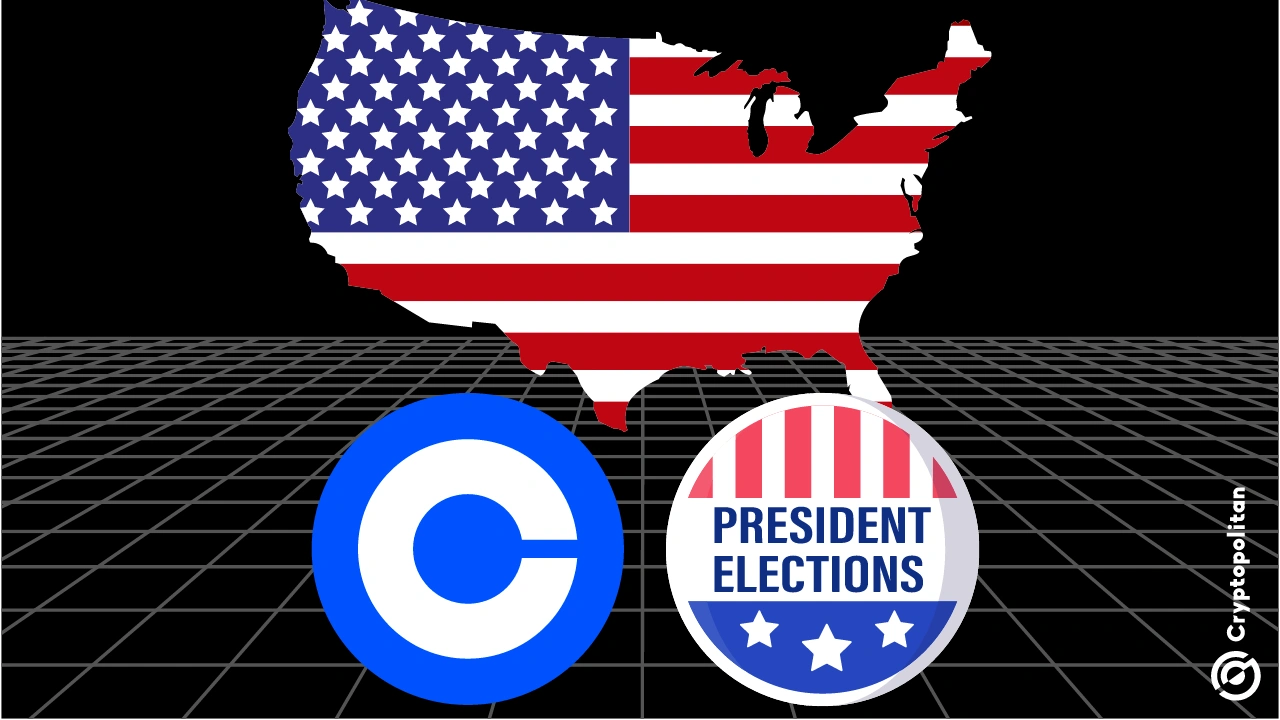
Coinbase, the heavyweight of crypto, is all in on Washington, and with Election Day here, it’s time for the company to face its moment of truth.
CEO Brian Armstrong, who once kept his distance from Capitol Hill, now has a standing date with the nation’s policymakers.
“About five or six years ago, we realized that crypto was getting big enough that we needed to go really engage actively in a policy effort, so I started coming out to D.C.,” Armstrong said after a day of back-to-back meetings with political figures.
Today, his schedule is packed with D.C. visits, and Coinbase is spending big to push its agenda. Armstrong and Coinbase are throwing money around like it’s confetti.
They’ve dished out more than $75 million to Fairshake and other PACs, along with a fresh $25 million commitment to support Fairshake’s pro-crypto efforts in 2026. And Armstrong, personally, has dropped over $1.3 million on a mixed bag of candidates across the political map.
Coinbase’s legal headaches and the SEC standoff
Why the Capitol Hill lovefest? For Coinbase, it’s existential. Last year, the Securities and Exchange Commission (SEC), headed by Gary Gensler, decided to make an example of Coinbase, accusing it of selling unregistered securities.
Coinbase is facing off against the SEC in a legal brawl that’s headed for a jury trial. Armstrong is blunt about his intentions: he wants Congress to step in with rules that keep the industry moving. And in the meantime, he’s not backing down in court.
Paul Grewal, Coinbase’s chief legal officer, isn’t sitting back either. Grewal’s been busy connecting with key political players, including attendance at a San Francisco fundraiser hosted by David Sacks, who recently flipped from Trump critic to supporter.
Sacks managed to raise $12 million for the former president in June, and Grewal also attended a follow-up fundraiser in Nashville in July. Both the Trump and Harris camps are keeping crypto voters on their radar.
Grewal has been clear: Trump “came earlier to this pro-crypto view,” and while Harris hasn’t been vocal about crypto, Grewal said the VP camp has shown an understanding of what crypto voters want. Both campaigns, he says, know that swing state voters care about crypto. Grewal claims this acknowledgment is pushing the candidates to address crypto-friendly policies.
With the Stand With Crypto Alliance, Coinbase’s advocacy arm, Armstrong is building a network of pro-crypto candidates. The Alliance has a grading system, where House and Senate hopefuls earn grades based on crypto-friendliness. It’s a way to keep candidates accountable and keep crypto in the game.
In Ohio, Stand With Crypto graded Sen. Sherrod Brown, who chairs the Banking Committee, with an “F.” Brown’s Republican challenger, Bernie Moreno, a blockchain entrepreneur, got an “A.” The stakes are high: $40 million of crypto cash is aimed at taking Brown down. Crypto PACs have put out five ads highlighting Moreno, hoping to edge him ahead in a close race that could shift Senate control.
Coinbase’s money and the crypto vote machine
The Alliance is just one piece of Coinbase’s election puzzle. Stand With Crypto now has a community of 1.4 million, focused on turning digital asset owners into registered voters. This mobilization effort includes a nationwide bus tour through key battleground states.
“It’s really extraordinary, given how razor-thin the margin of victory was in the 2020 election, to see crypto not only be an issue, but potentially a determinative issue in terms of the presidential cycle,” said Faryar Shirzad, Coinbase’s chief policy officer.
Last year, he and his team came to a realization: if crypto is going to stay out of politics, they need to get their hands dirty in it. His goal? “To neutralize the politicization of the crypto issue and talk about it on the merits.” It’s Coinbase’s way of hedging its bets—build influence now or face a regulatory chokehold later.
The company isn’t alone in this. Crypto money is flowing freely in this election. Fairshake, a PAC powerhouse, claims to have raised around $170 million and spent about $135 million so far. Ripple Labs, embroiled in its own battle with the SEC, has also dropped $50 million into Fairshake.
Ripple has spent over $100 million fighting Gensler and, like Coinbase, is putting cash behind candidates who might loosen the regulatory grip. Over 100 enforcement actions have hit crypto companies in the past four years.
Stand With Crypto hits the streets and the stage
To rally support, Stand With Crypto held an event at The Black Cat in D.C., turning the venue into a pro-crypto fortress. Armstrong himself showed up, ditching his typical casual look for a suit and tie. This wasn’t a quiet mixer; it was loud, with merch flying around and an “Alice in Wonderland” vibe—purple walls, exposed brick, and a black-and-white checkered floor.
People got their Stand With Crypto swag, and Armstrong spoke to CNBC outside, saying he was confident in the crypto voter’s power. “The crypto voter has become a major part of this election now,” Armstrong said. “I think the crypto voter is really real, and we’ll see what happens in November.”
Alongside him, Consensys CEO Joe Lubin and Rep. Wiley Nickel, D-N.C., took the stage. Their words were nearly drowned out by the crowd noise, but when The Chainsmokers stepped up for their headline act, the audience went wild. The band kicked off with “Paris,” and the crowd joined in, belting out, “If we go down, then we go down together.”
As Coinbase’s influence grows, Armstrong’s D.C. visits have ramped up. At first, he showed up once or twice a year, then quarterly, and now it feels like he’s a Capitol Hill fixture. “In the beginning, a lot of people didn’t know what crypto was,” Armstrong said of his early meetings. Now, he says the conversation has evolved to talk of passing clear laws for the crypto industry.
Data from CCData shows Coinbase is struggling with a falling market share. Its latest quarterly earnings weren’t great either; revenue and profits missed the mark, with shares plummeting by 15%.
Crypto.com and other players are eating into its slice of the pie, while spot funds from giants like BlackRock give investors new ways to buy bitcoin and ethereum. Samara Cohen, BlackRock’s ETF head, says 75% of their bitcoin buyers are new to Wall Street but already deep in crypto.
Coinbase’s political playbook is part of a bigger picture. Nearly half of corporate election money this year comes from crypto.











